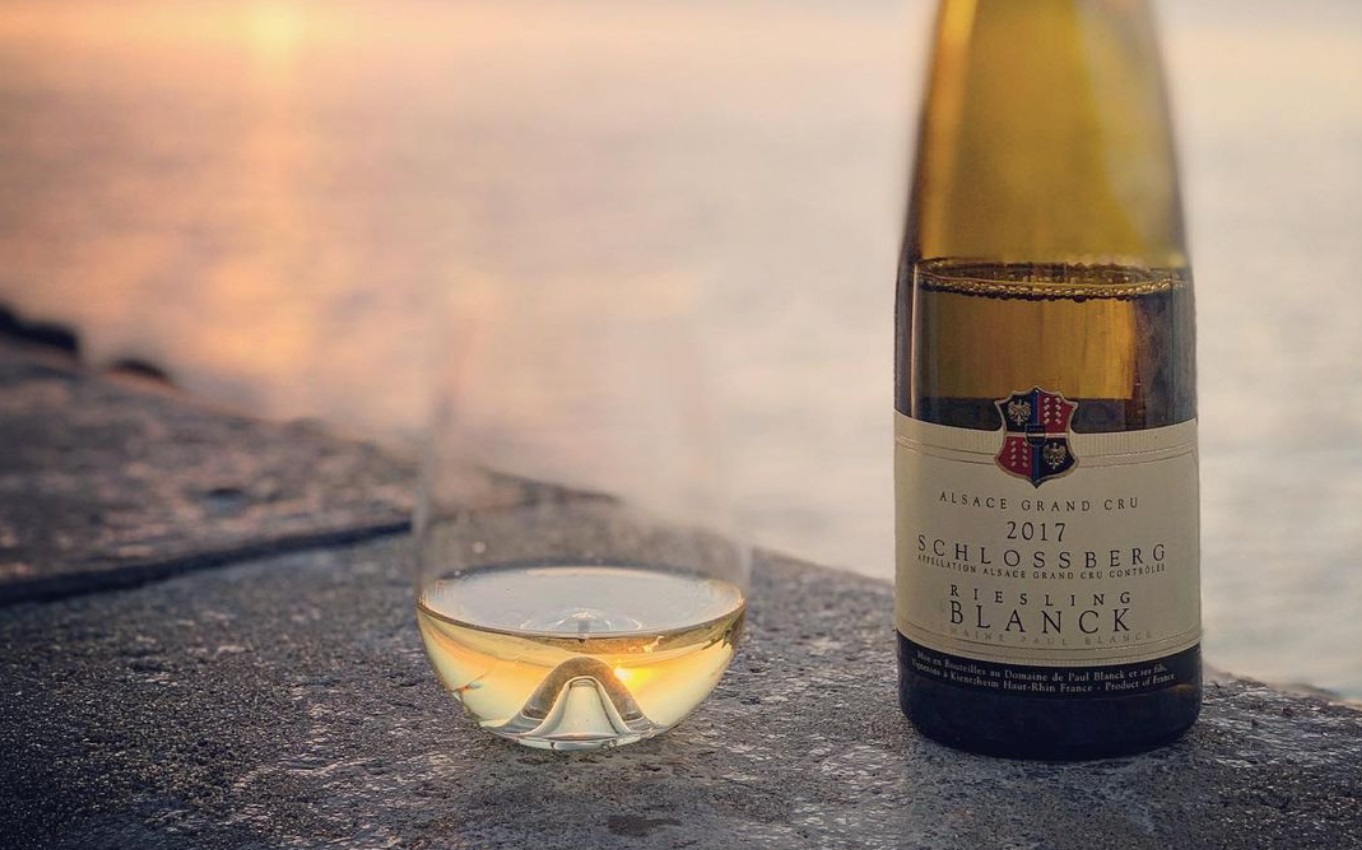
It was so good to have our great friend Frédéric Blanck of Domaine Paul Blanck on these shores again this summer.
Of course, it’s just bloody nice to see a member of CellarHand’s European family in the flesh.
But on top of that it was great to be reminded afresh of the joie de vivre of these organic wines that so purely and proudly show these grape varieties – gradually and beautifully ripened in the dry Alsatian climate – through the prism of the region’s myriad soils.
Freddy has been in charge of the vineyards and winemaking at the estate since the mid-1980s.
The 24-hectare domaine in Kientzheim has phenomenal vineyard holdings, with some 70% of land in the grands crus and lieux-dits.
Forthright, instinctive and pragmatic, Freddy captures the unique essence of Alsace with wines that are unforced in the extreme.
The warm, dry climate of Alsace does its job of slowly ripening grapes to perfection, and the mosaic of soils infuses these grape varieties with singular character.
With Freddy’s honed sense of balance, the wines are frank and sensual – and straightforwardly delicious.
2020 Paul Blanck Pinot Blanc RRP $32
From soils of gravel, sand and south-facing clay and limestone. The juice is extracted with infinite care in our air-bag press. The slow, gentle pressing avoids crushing the stalks and pips. This is followed by slow, natural fermentation in temperature-controlled stainless-steel vats, generally lasting from four to 10 weeks.
2019 Paul Blanck Pinot Gris RRP $36
This wine sits in a range the Blancks call “Les Classiques”. These are easy, accessible wines made from the traditional Alsatian grape varieties. They are fruit-driven, aromatic, dry wines that give the best of themselves within the first five to seven years, if you wish to retain their primary fruit-driven personality. The screw cap closure enhances this profile and helps the wines keep both freshness and liveliness far longer. They generally come from light soils with sand and gravel as well as sandstone or clay.
Fruit for the Blanck Pinot Gris was sourced from gravel, sand and south-facing clay and limestone vineyards. It was gently whole bunch-pressed before spontaneous alcoholic fermentation in stainless steel.
2020 Paul Blanck Riesling RRP $36
The fruit comes from vineyards with sand and gravel soils around the village of Kientzheim.
The juice is extracted with infinite care in an air-bag press. The slow, gentle pressing avoids crushing the stalks and pips. The must starts fermenting of its own accord thanks to the natural yeast present in the juice, and the fermentation generally lasts from four to 10 weeks. It is carried out in stainless-steel vats equipped with temperature control, a medium which maximises the expression of this variety’s aromas.
2017 Paul Blanck Riesling Schlossberg Grand Cru RRP $80
An exceptional vineyard. At 200-300m, the Schlossberg slope lies on the Kaysersberg migmatites and the intruding granite of Thannenkirch, whose arenaceous character provides very fertile, mineral soil, composed both of coarse sand and clay.
The variety of minerals (potassium, magnesium, fluorine, phosphorus) determines the finesse and aromatic complexity of its wines. Schlossberg slopes so steeply that vines are grown on terraces.
The juice is extracted with infinite care in an air-bag press. The slow, gentle pressing avoids crushing the stalks and pips. The must starts fermenting of its own accord thanks to the natural yeast present in the juice, and the fermentation generally lasts from four to 10 weeks. It is carried out in stainless-steel vats equipped with temperature control, a medium which maximises the expression of this variety’s aromas.
Youthful and discreet nose of white peach and pink grapefruit with overtones of wild herbs, lemon zest and licorice This has quite some density, but remains very sleek, almost austere, with a lot of herbal and mineral depth. Drinkable now, but better from 2023. 93 points. Stuart Pigott, jamessuckling.com July 2021